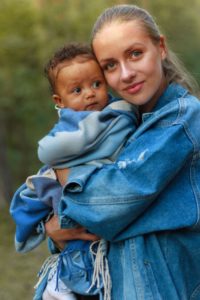I was so fortunate to be present in the delivery room when my two grandchildren were born. Watching them grow these last few years has reminded me that everyday, a child learns something new. Everyday a child changes. Everyday a child grows.
What is the biggest influence on child development?
The debate regarding nature and nurture is ancient. Research now firmly suggests that development is based on both. Genetics and environment are interdependent. Stauffer and Capuzzi in Human Growth and Development state, “Our heredity comes with capacities for wonderful skills, but [those skills] must be nurtured by the environment.”
A Neflix documentary, The Beginning of Life, presents breakthroughs in technology and neuroscience. The research presented in this film shows that we should be paying ever more attention to the first three years of life. Those first years are referred to as a framework of sorts, like building the frame of a house. Learning takes place much more rapidly ages 0-3.
Experts in the field remind us that a 3-year-old brain is twice as active as our adult brain. We need only look into a child’s face to see that there is so much happening, all at once.
Andrew N. Meltzoff, PhD, is an American psychologist who is an internationally recognized expert on infant and child development. He states that 30 years ago, philosophers thought baby brains were undeveloped. Their babbling before language wasn’t taken so seriously. The truth is just the opposite, the good doctor emphasizes, for at the Institute for Learning and Brain Sciences, research shows that babies learn more and know more than we ever thought possible.
Particia K. Kohl, PhD / Co-Director of the Institute for Learning and Brain Sciences, speaks to the idea that the baby’s brain is just waiting for the environment to show him/her how this culture does things. She calls it a “sense of self” (how does it feel to be me?) and a “sense of the world” (how does it feel to be human?). Her study reminds us of the term neuroplasticity, the brain’s ability to change with experience. It is a baby’s brain that is most adaptable.
Alison Gopnik, PhD, is a psychologist and neuroscientist who reminds us of something very important: We often say toddlers have trouble paying attention. What is actually true is that they have trouble NOT paying attention. Toddlers are, she urges, very sensitive to all info around them, taking it in and putting it into use. The irony is that children are so observant, while adults walk around with their eyes practically closed, not noticing, not observing all that is happening around them, in nature, in people.
Children don’t just babble. Rather, children are actually little scientists and the best learners, and they recognize novelty in what we might consider to be the most mundane things. We can’t underestimate what’s going on in a child’s brain. Could it be that babies learn more in the first three years of life than they will ever learn in that time span again?
Warning: it is also the baby’s brain that can be so vulnerable, suffering from threat or abuse. We must all tread softly. And the thing is that things, money and fancy toys, don’t matter so much. The film depicts mothers in great poverty who interact actively with their babies and whose babies are thriving.
As exhausting as it is to be a parent, the parent has great power to put a child on the right trajectory. This scientific documentary ultimately says that it is all about the love: “Love is the necessary background for exploration.” It is important to be paying attention to this new little life, offering interaction and affirmation. And parenting, (well and grand-parenting of course) is one the highest of callings.
Written by: Jana Wesson-Martin, LPC-Intern – Therapist – New Braunfels location